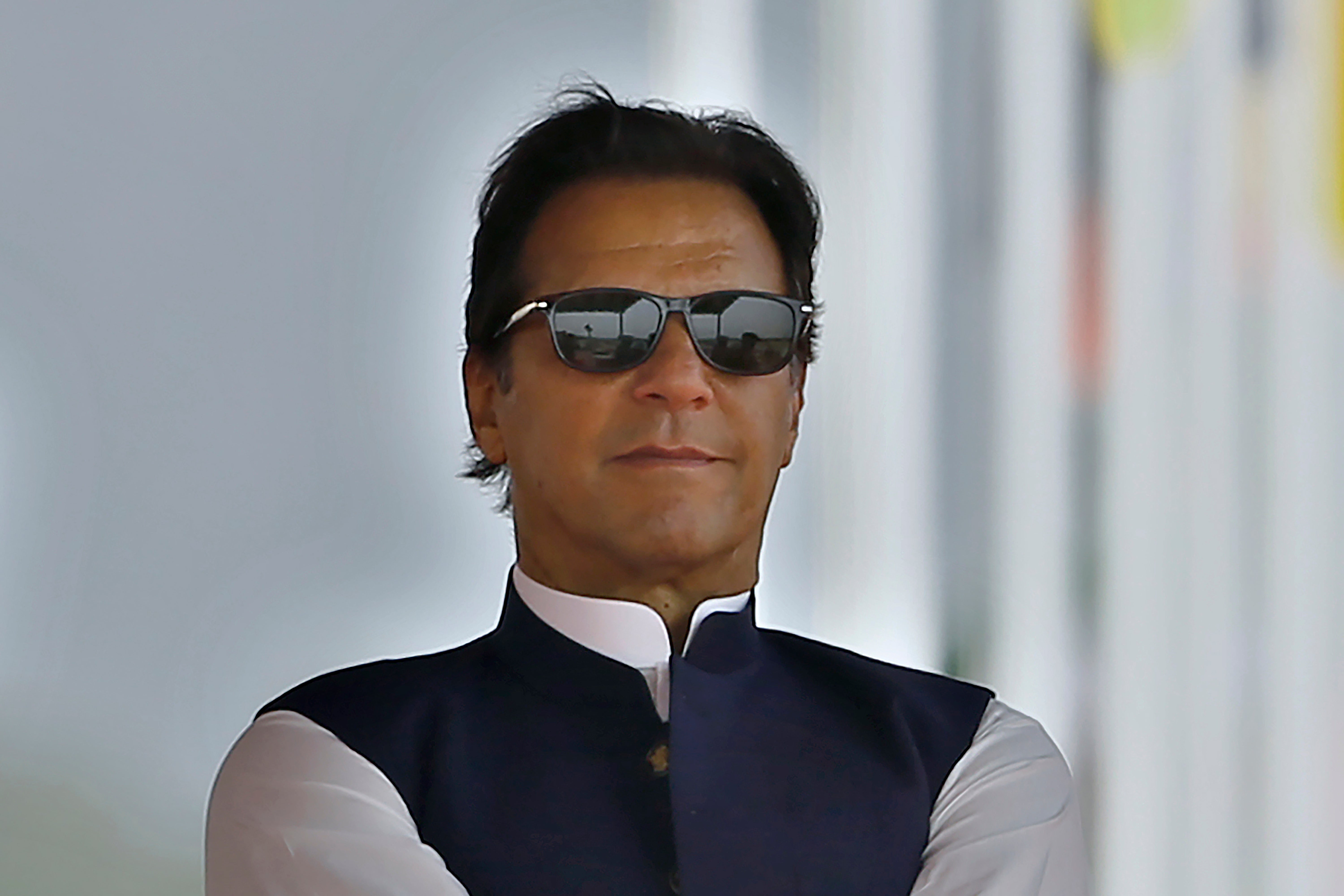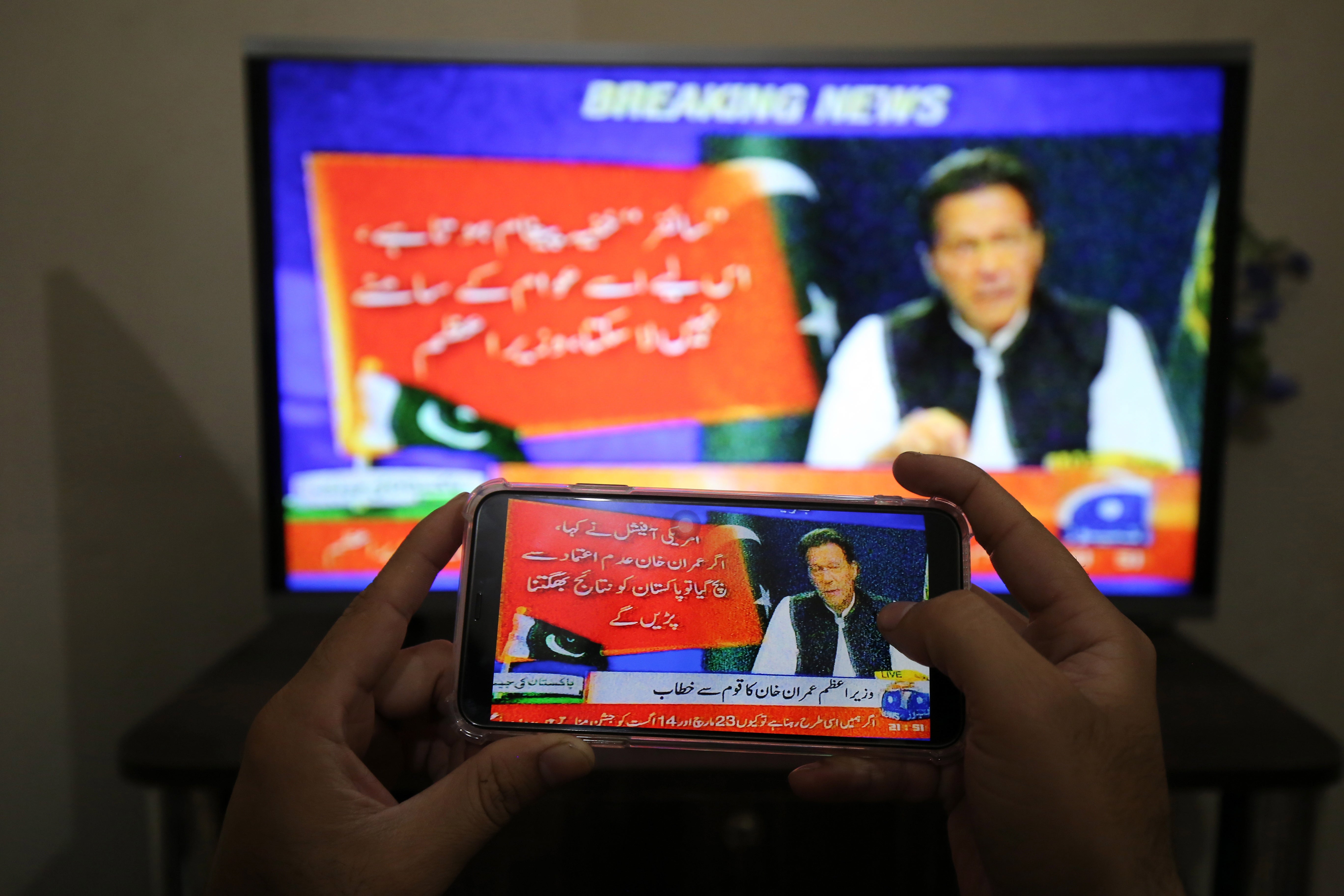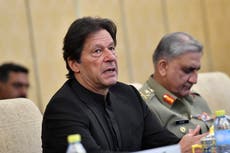Imran Khan: Pakistan’s prime minister ousted by no-confidence vote
Pakistan parliament will meet on Monday to elect Imran Khan’s successor

Pakistan’s parliament has ousted the country’s prime minister Imran Khan with a no-confidence motion.
The political opposition won the vote after several of Mr Khan’s allies and a key coalition party deserted him.
The combined opposition will now form the new government. The assembly will also appoint a new prime minister, who will be able to hold power until October 2023, when the next election is due to be held.
The candidates for Pakistan’s next prime minister filed their nomination papers on Sunday. Pakistan’s parliament will meet on Monday to elect Mr Khan’s successor.
Shehbaz Sharif — the brother of former prime minister Nawaz Sharif — is the frontrunner for the country’s top job. He told the parliament on Saturday that Mr Khan’s ouster was a chance for a new beginning for the country.
“A new dawn has started ... This alliance will rebuild Pakistan,” Mr Sharif said.
Mr Khan has not yet spoken out publicly about his ouster. But before the vote, he had called for peaceful protests.
On Saturday, the former cricket star Mr Khan said that if he was removed from power he would not recognise an opposition government. “I will not accept an imported government. I’m ready for a struggle,” he said.
He had previously called the vote a “foreign-funded drama” and called on people to protest against it.
The vote had been held up by 13 hours before parliamentarians started voting on Saturday. Opposition parties were able to secure 174 votes in the 342-member house in support of the motion, presiding speaker Ayaz Sadiq said.
In scenes of heightened drama earlier in the day, the speaker of the National Assembly, the lower house of parliament, resigned saying: “The country’s interests must be the priority.”
The start of the voting was announced by a legislator from the opposition, who took over the empty speaker’s seat, Reuters reported.

Imran Khan has called the vote a “foreign conspiracy against Pakistan”. He becomes the first prime minister of Pakistan to be ousted by a no-confidence vote.
“This would be the first time in Pakistan’s history that a no-confidence vote succeeds in ousting a Prime Minister - the fulfilment of a constitutional process that was far from guaranteed after Khan’s attempts to derail the vote,” Elizabeth Threlkeld, Pakistan expert at the US-based Stimson Center, told Reuters. “That, in itself, is significant, and could give Pakistan something to build on going forward.”
Lawmakers tried to put forward the no-confidence motion to the parliament last Sunday but were blocked by a member of Mr Khan’s political party.
The opposition to Mr Khan then submitted a petition to the Supreme Court to rule on the situation. On Thursday, the top court said that the no-confidence vote should go ahead.
The motion was meant to go ahead on Saturday morning but the parliament was adjourned for one-and-a-half hours as Mr Khan was not present in the House.
Mr Sharif said on Saturday: “I hope you [the speaker] will carry out today’s proceedings of the House as per the order of the Supreme Court.
“I urge you to stand for the Constitution and law.”
Pakistan’s powerful army chief General Qamar Javed Bajwa reportedly met Mr Khan on Saturday.
The opposition and some analysts say that Mr Khan has fallen out with the military, a charge that he and the military deny.
Join our commenting forum
Join thought-provoking conversations, follow other Independent readers and see their replies
Comments


Bookmark popover
Removed from bookmarks